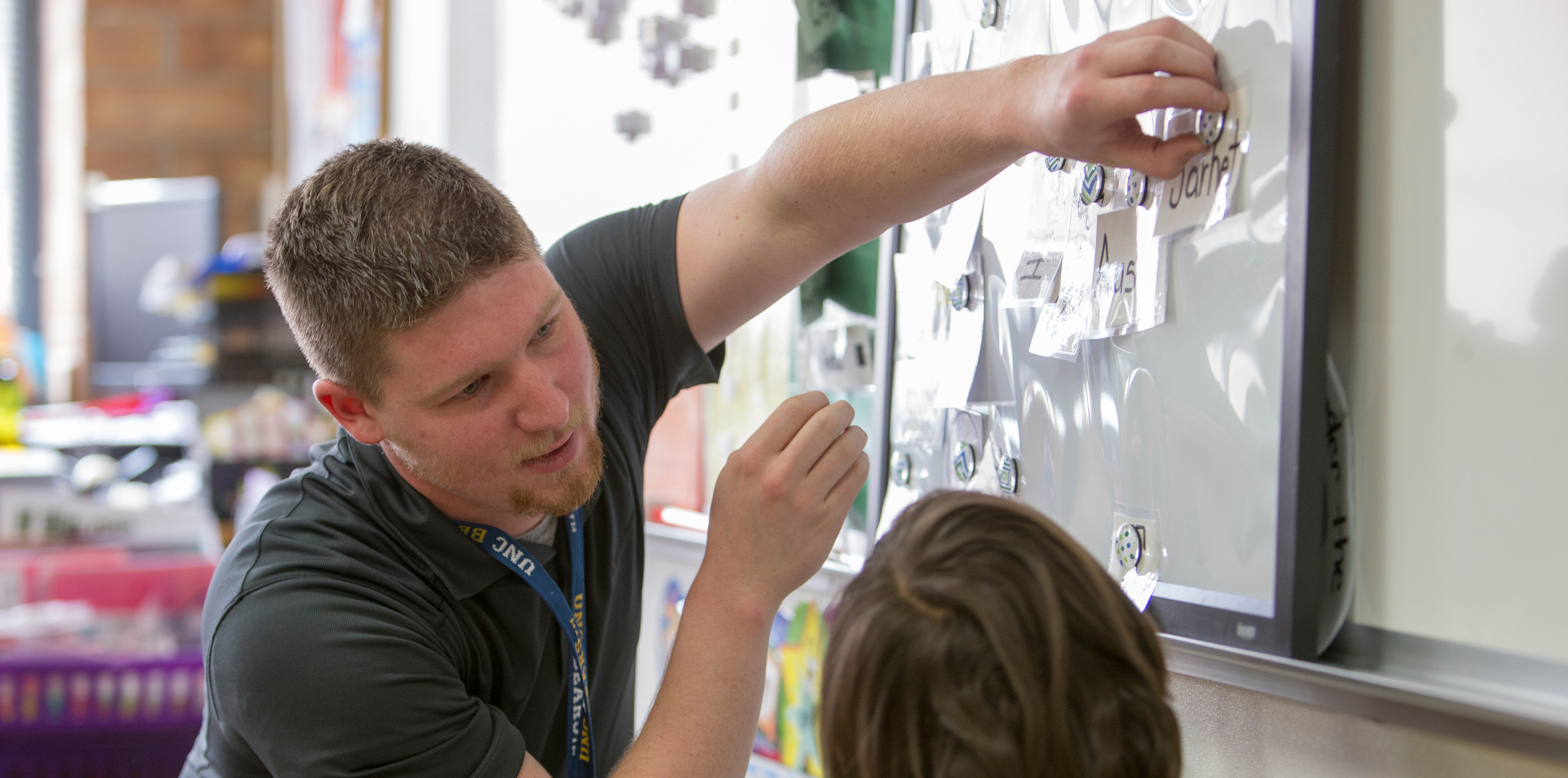Among Shortages, Collaboration with State Keeps Teachers Standing Tall

June 13, 2023
Education, like any discipline, is a collaborative process. But in many K-12 school districts in Colorado, it isn’t always easy for teachers to communicate with peers from other schools or receive the support they need.
“Isolation is a big problem in the teaching profession, whether you’re in an urban or rural setting, because when you close your classroom door, it’s just you and the students,” Jared Stallones, Ph.D., dean of the College of Education and Behavioral Sciences at the University of Northern Colorado (UNC) said. “It’s easy for teachers to get so far into their own practice that they’re not reaching out for new ideas and new techniques.”
To address this, the Colorado Department of Education (CDE) organized a series of Teaching and Learning Co-Labs that are locally hosted, multi-disciplinary events made up of panels and discussions on a variety of content areas. They’re designed to bring educational professionals together and get them talking, sharing and collaborating with one another.
On June 14, UNC will host a Teaching and Learning Co-Lab for the second year in a row, having been a part of the inaugural event lineup in 2022.
“We really wanted to sit down and look at regions in the state we hadn’t touched on as much,” said Olivia Gillespie, event co-organizer and Literary Content Specialist for the CDE.
Each Co-Lab brings together stakeholders in K-12, higher education, Colorado's professional teaching organizations and the Colorado Department of Education.
“We know some of our rural school districts don’t always get the chance to come together and collaborate and develop,” Gillespie said. “A lot of times, teachers at these schools are the only ones in their content specialization in the area. So who are they getting to collaborate with? Who do they get to build a professional learning community with when it’s just them teaching by themselves? This event allows those teachers to come together, to grow, to find those learning and teaching partners and peers.”
The timing of the event not only accommodates summer break when teachers across the state are able to regroup, it also address a current issue happening nation-wide – a teacher shortage. Since 2017, the CDE and the Colorado Department of Higher Education (CDHE) has collected data to analyze the state’s educator shortage problem. During the 2021-22 school year, the results showed that 5,729 teaching positions needed to be filled, and in 2022-23, 8,294 teaching positions needed to be filled, 8.7% of which remained open.
“Anything that we can do to better equip teachers so that they feel more confident and successful in the classroom is going to retain teachers in the profession,” Stallones said. “That’s why we want to be part of the Co-Lab. We produce far more teachers than any other institution in the state, and we need to support them into their careers.”
Robert Beauchamp, Expanded Learning Opportunities Program Manager for the CDE and another organizer for this year’s block of Co-Labs, echoes the importance of the events as a unique chance for K-12 schools and institutes of higher education to collaborate.
“Being able to partner with institutes of higher learning in the area is a fantastic value add,” Beauchamp said. “It really helps districts to see the breadth of resources available to them in their regional areas and allows them to enable their educators to grow as professionals by leveraging those resources.”
According to Beauchamp, these Co-Lab events are also a one-of-a-kind opportunities for the Department of Education and the school districts to get feedback directly from the teachers themselves.
“They really help to identify areas where teachers are looking for support day-in and day-out,” Beauchamp said. “In addition to content-specific learning, we’re able to provide some professional development in these other spaces and give teachers the tools they need to support kids and families."
One such area Beauchamp mentioned was help with social/emotional learning methods and mental health support for students as a direct result of the recent pandemic.
And it isn’t just district educators who benefit from these Co-Lab events. Many UNC faculty will be in attendance, both as presenters and audience members. True to the name, the events are a great space to connect with their peers in K-12 education.
“Talking about the collaborative aspect, the event allows our professors in higher education to get a closer link with in-service teachers in their districts and provides such a strong opportunity to fine-tune the teaching tools of all educators involved,” Gillespie said.
“This is only year two,” Beauchamp added. “This is all still pretty fresh. In future years, we’re looking to connect with more underserved districts, more higher education partners and to do whatever we can to hear about and meet the individual needs of each region.”
While growing the current event to include more schools and more universities is certainly part of that goal, the organizers would also like to broaden the scope in order to support schools year-round, not just during the events themselves.
“It’s about all of us coming together because we have a vested interest, and that vested interest is our students in the state,” Gillespsie said. “We want to ask how we can be better as adults and educators so that we’re better for our students and can get them where they need to be.”
The event is the spiritual successor to a program called Regional Institutes for Science, piloted in 2021 with the goal of training teachers on updated science education standards. Since that pilot program, the Co-Labs have grown to encompass mathematics, health and physical education, social studies and more.
UNC’s Co-Lab is slated to consist of 67 sessions and see over 120 attendees.
– written by Duard Headley

